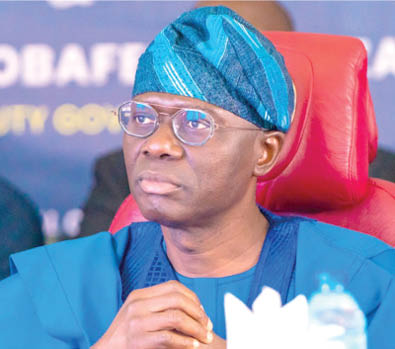Life under the bridge, an emblem of homelessness in Lagos, Lagos State, reflects a complex societal issue that demands thorough understanding and thoughtful intervention. As with many cities worldwide, Lagos grapples with the influx of migrants, both internal and external, compounded by the pervasive insecurity plaguing the nation. This phenomenon isn’t unique to Nigeria; it resonates with the global trend of urbanisation, where half of the world’s population now resides in cities, drawn by economic opportunities and various other factors.
The response to homelessness, both from society and the government, is crucial in managing this situation effectively. Criminalising homelessness offers no solution; instead, it necessitates a pragmatic approach to address the root causes and provide sustainable alternatives.
Recent actions such as the sudden clearance of under bridge dwellers in Lagos State, prompt scrutiny and reflection. While such endeavours may seem like immediate solutions, they often merely displace the issue rather than resolve it. Studies reveal that clearing one settlement only prompts the migration of its residents to new locations within the state, perpetuating a vicious cycle of homelessness and informal settlements.
The underlying question emerges, how can Lagos tackle the homelessness issue effectively?
Concrete provisions are imperative for those without a place to call home. Social housing initiatives must be explored, offering affordable options for low-income groups. Additionally, flexible housing designs that align with the budget and livelihoods of these communities are essential. Furthermore, a comprehensive land titling policy is critical to empower residents in informal settlements to upgrade their communities. The urgency of this matter is underscored by the revelation that squatters are paying significant sums annually, emphasising the need for accessible and affordable housing options.
Moreover, this isn’t solely a Lagosian predicament; it’s a national issue that demands collaboration between the federal and the state governments. While Nigerians have the freedom to migrate within the country, efforts must be made to reduce migration through strategic policies and initiatives.
At Rethinking Cities, an advocacy group dedicated to solving urban challenges in Africa, our efforts align with these principles. We advocate an affordable housing development fund in Lagos to support low-income groups in accessing housing below market rates. Furthermore, we engage with communities to co-create sustainable solutions, considering factors like drainage, sanitation and public spaces. Collaboration with professionals from the real estate and legal sectors further informs our advocacy, aiming to streamline the land titling process for low-income communities.
In conclusion, addressing homelessness in Lagos requires a holistic approach that prioritises sustainable solutions over short-term fixes. By embracing collaborative efforts and innovative strategies, we can pave the way towards a more equitable and inclusive urban landscape in Lagos and beyond.
Deji Akinpelu is the co-founder of Rethinking Cities.

 Join Daily Trust WhatsApp Community For Quick Access To News and Happenings Around You.
Join Daily Trust WhatsApp Community For Quick Access To News and Happenings Around You.


